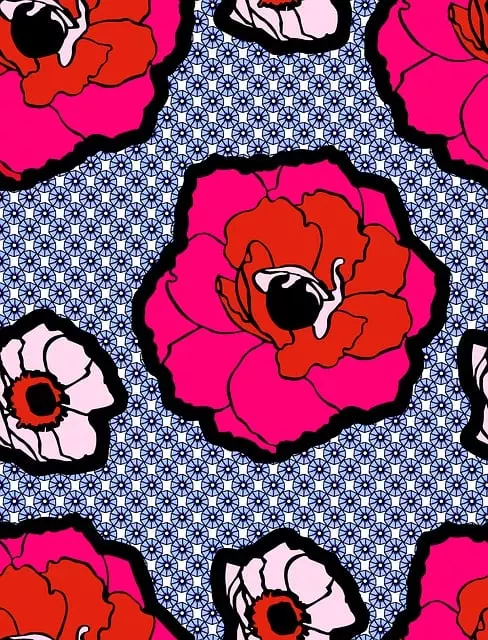Kratom, a plant from Southeast Asia containing compounds like mitragynine and 7-hydroxymitragynine, has shown potential in addressing hair loss conditions such as alopecia areata and androgenetic alopecia. Its anti-inflammatory effects may modulate immune responses linked to inflammation and could promote hair regrowth by reducing pro-inflammatory cytokines. The interaction of kratom with immune receptors presents a novel approach to combating hair loss, which might complement other treatments. However, it's essential for individuals to seek medical advice before using kratom due to the variability in responses and the importance of safe application. While anecdotal evidence points to its effectiveness, further research is necessary to establish its efficacy and safety for treating hair loss. The potential of kratom in aiding hair growth in the context of inflammation-related hair loss is an area of scientific interest, but it should be explored within a medical framework with professional guidance due to its complex nature.
Exploring the therapeutic potential of kratom, this article sheds light on its role in inflammation reduction and its implications for hair regrowth. Delving into the scientific rationale behind kratom’s anti-inflammatory properties, we uncover how these mechanisms may contribute to combating hair loss. Through a detailed investigation of kratom’s efficacy, we also present compelling personal narratives that underscore the positive impact of kratom on hair growth. Join us as we examine the interplay between kratom supplementation and inflammation reduction in the context of hair regrowth, offering valuable insights for those affected by this condition.
- Unraveling the Connection Between Kratom and Hair Regrowth: A Closer Look at Inflammation Reduction
- The Science Behind Kratom's Anti-inflammatory Properties and Their Role in Hair Loss Management
- Personal Journeys: Real-life Stories of Kratom Aiding in Hair Growth Overcoming Inflammation-related Hair Loss
Unraveling the Connection Between Kratom and Hair Regrowth: A Closer Look at Inflammation Reduction

Kratom, a botanical extract from the leaves of Mitragyna speciosa, has garnered attention for its potential impact on hair regrowth, particularly through its anti-inflammatory properties. Chronic inflammation is often associated with hair loss conditions such as alopecia areata and androgenetic alopecia. Kratom’s primary active components, mitragynine and 7-hydroxymitragynine, have been studied for their ability to modulate the body’s immune response, which is pivotal in inflammation reduction. By targeting the underlying inflammatory processes that contribute to hair loss, kratom may offer a novel approach to promoting hair regrowth.
Research indicates that kratom alkaloids can interact with receptors involved in immune function and inflammation. These interactions could potentially lead to a decrease in pro-inflammatory cytokines that are detrimental to hair follicle health. Additionally, the anti-inflammatory properties of kratom may enhance the effectiveness of other treatments for hair loss by creating a more conducive environment for hair regrowth. While the evidence is promising, it is crucial for individuals interested in using kratom for this purpose to consult with healthcare professionals. This is to ensure safe and effective use, as individual responses to kratom can vary significantly.
The Science Behind Kratom's Anti-inflammatory Properties and Their Role in Hair Loss Management

Kratom, a tropical evergreen tree native to Southeast Asia, has been traditionally used for its medicinal properties. Recent scientific studies have begun to unravel the mechanisms behind kratom’s anti-inflammatory effects, which are primarily attributed to its alkaloid content, particularly mitragynine and 7-hydroxymitragynine. These compounds interact with the body’s opioid receptors, which can modulate inflammatory responses. Inflammation is a complex biological response to injury or disease, and chronic systemic inflammation has been implicated in various health issues, including alopecia areata, an autoimmune condition that leads to hair loss. By addressing the underlying inflammation, kratom may offer a supportive role in managing this condition.
The anti-inflammatory properties of kratom could potentially contribute to its use in hair loss management, particularly when hair loss is related to inflammatory processes. Alopecia, which encompasses various forms of hair loss, can be exacerbated by chronic inflammation. Kratom’s potential to mitigate this inflammation may help in promoting an environment conducive to hair growth. While the scientific evidence is still emerging and more research is needed to fully understand its efficacy and safety for this purpose, early findings suggest that kratom could be a promising supplement for individuals experiencing hair loss due to inflammatory conditions. Users interested in exploring kratom for hair loss should consult with healthcare professionals to assess the risks and benefits, as well as to explore other treatment options that are evidence-based and medically approved.
Personal Journeys: Real-life Stories of Kratom Aiding in Hair Growth Overcoming Inflammation-related Hair Loss

Individuals grappling with inflammation-related hair loss have turned to kratom supplements as a potential natural solution for promoting hair regrowth. An array of personal journeys underscores the experiences of those who have incorporated kratom into their health regimen. These real-life stories often recount the frustration and desperation that come with alopecia areata, an autoimmune condition characterized by unexpected hair loss. For many, conventional treatments offered limited relief, and it was only after discovering the potential of kratom hair loss remedies that they observed significant improvements. Kratom’s alkaloids, primarily mitragynine and 7-hydroxymitragynine, are believed to have anti-inflammatory properties that can help in reducing the scalp inflammation associated with hair loss conditions. Anecdotal evidence suggests that regular kratom consumption may aid in hair growth by soothing the scalp, thereby creating an environment conducive to healthier hair follicles and new hair growth. These stories of kratom helping to grow back hair lost to inflammation are not only encouraging but also provide hope for those who have struggled with this issue. As with any supplement, it is important to consult with a healthcare provider before incorporating kratom into one’s health regimen, especially considering the unique physiological and psychological makeup of each individual.
In recent years, kratom has garnered attention for its potential role in inflammation reduction and its implications for hair regrowth. This article has explored the scientific basis for kratom’s anti-inflammatory properties and their significant impact on managing hair loss, providing a comprehensive understanding of how this supplement may aid in restoring hair growth. The anecdotal evidence presented through personal journeys further underscores the efficacy of kratom in overcoming inflammation-related hair loss. As research continues to evolve, the potential for kratom as a natural intervention in hair regrowth is promising, offering hope to individuals seeking effective solutions. Future studies are essential to fully elucidate the mechanisms at play and establish safe and consistent protocols for its use.






